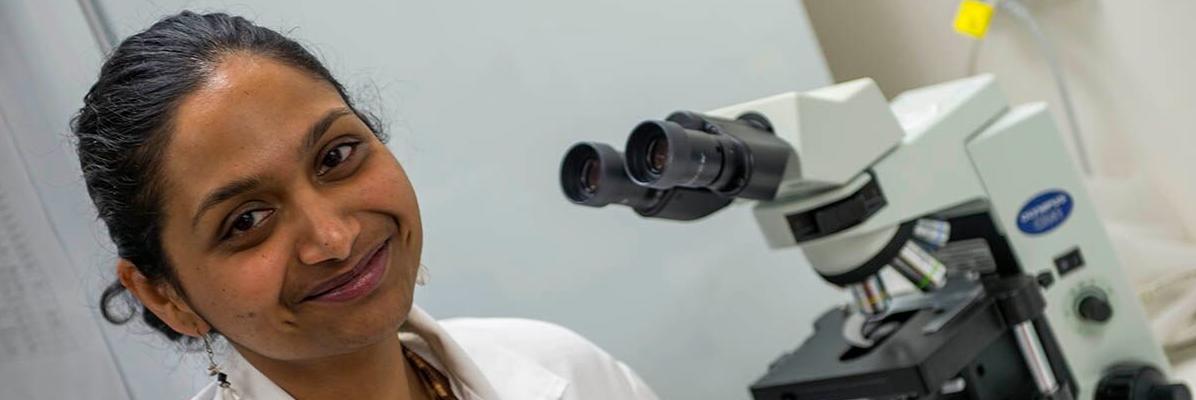Karmella Naidoo’s research at the Malaghan Institute of Medical Research
PhD student at Malaghan Institute of Medical Research on the hunt for immune targets that could lead to new approaches to debilitating disease
MEDICAL RESEARCH STORY I 12 November 2015
Global trends now identify allergic diseases as having the most important health and economic impact on both the developed and developing world. One in five New Zealand children suffers from eczema; an allergic disease that typically starts in infancy and results from an inappropriate immune response to innocuous substances such as house dust mites or pollen. Skin allergy or eczema is usually the first sign of allergic disease in young infants and is often associated with an underlying food allergy. These children are then more likely to go on to develop respiratory allergies, such as asthma and hay fever or some type of food allergy.
This progression is called the ‘allergic march’ and is the subject of focus for PhD student Karmella Naidoo’s research at the Malaghan Institute of Medical Research.
Karmella works in the Gut Immunology team as a part of the allergy programme there. Her research project: Arresting the allergic march; investigating the inflammatory markers in allergic disease, investigates the inflammatory markers in allergic disease. This entails developing an experimental model of allergic skin inflammation and investigating what drives the skin inflammation that corresponds to atopic eczema in patients. Employing this model of allergic skin inflammation will define various effector cells, mediators and proteins responsible for the initiation of allergic inflammation in the skin. The last two decades have uncovered more detail of the workings of the immune system at a cellular level which, in turn, means researchers like Karmella are literally on the hunt for specific immune targets that could lead to new therapeutic approaches for this debilitating disease. It could also lead to further work to stop the ‘allergic march’.
Karmella is twenty months into her PhD under supervisor Dr Elizabeth Forbes-Blom, Gut Immunology Team Leader, Malaghan Institute of Medical Research and Professor Graham Le Gros, Allergic and Parasitic Diseases Programme Leader, Malaghan Institute of Medical Research.




